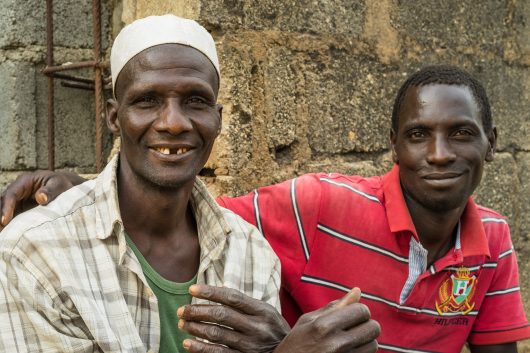United States and Nigeria: $17 Million to Fight Extreme Poverty
 The United States and Nigeria established diplomatic relations in 1960, when Nigeria gained independence from the United Kingdom. Since then, the United States and Nigeria have improved their relationship and developed bilateral representation. On October 4, 2017, the U.S. gave the government of Nigeria $17 million as part of their 2015 Development Objectives Assistance Agreement.
The United States and Nigeria established diplomatic relations in 1960, when Nigeria gained independence from the United Kingdom. Since then, the United States and Nigeria have improved their relationship and developed bilateral representation. On October 4, 2017, the U.S. gave the government of Nigeria $17 million as part of their 2015 Development Objectives Assistance Agreement.
According to the announcement released by the United States Embassy and Consulate in Nigeria, the funding will be divided to “support Nigeria’s power sector needs ($14 million), help increase agricultural productivity and economic growth ($2 million) and strengthen good governance ($1 million).” In total, the United States has provided $719 million to Nigeria under the agreement, which establishes four priority goals: improving governance, furthering economic development, expanding opportunity and enhancing stability, to be achieved in 2020.
The US Agency for International Development (USAID) “is the lead U.S. government agency that works to end extreme global poverty and enable resilient, democratic societies to realize their potential.” USAID partners with Nigeria to promote economic growth, equitable access to education and to clean water. In line with the four goals of the 2015 agreement, USAID’s Country Development Cooperation Strategy goal is to “reduce extreme poverty in a more stable, democratic Nigeria.”
According to the U.S. State Department, “Nigeria is the largest economy and most populous country in Africa with an estimated population of more than 180 million and an estimated gross domestic product of 510 billion USD in 2013.” Despite its economic prowess, Nigeria is also one of the poorest countries in the world, with a poverty rate of 64 percent.
Nigeria has the highest number of children out of school and the second-highest number of people living with HIV/AIDS in the world. Nigeria’s large (and growing) population and wide wealth disparity greatly increase the issue of poverty. From 2004 to 2014, absolute poverty in Nigeria rose by 6 percent, while the number of millionaires living in the country in that period rose by more than 44 percent. The 2015 Development Objectives Assistance Agreement between the US and Nigeria is aimed at addressing these factors of Nigeria’s poverty epidemic.
With the recent investment from the U.S., Nigeria’s human rights and economic concerns will be addressed. USAID has a long history of assistance to Nigeria and the relations between the two countries span far beyond. The U.S. is the largest foreign investor in Nigeria and the countries belong to multiple international organizations together. Reducing extreme poverty in a stable, democratic Nigeria will reduce the wealth gap and promote the development of multiple sectors of Nigeria’s economy.
– Eliza Gresh
Photo: Flickr
